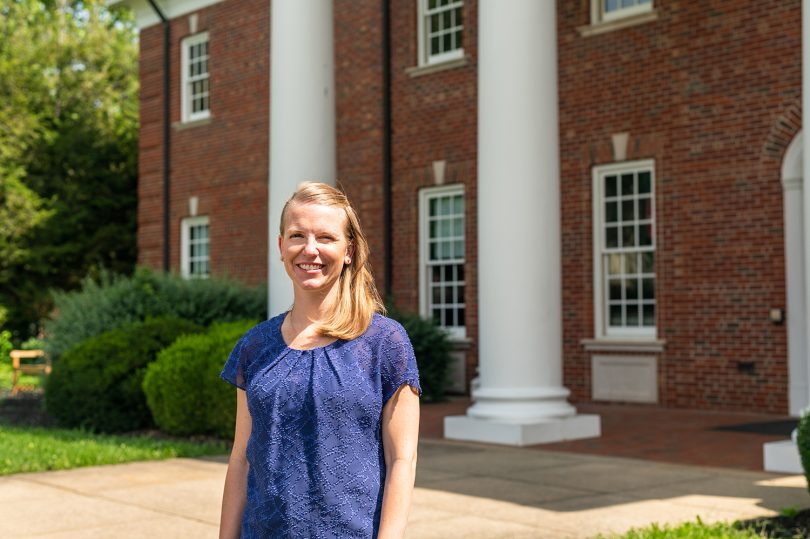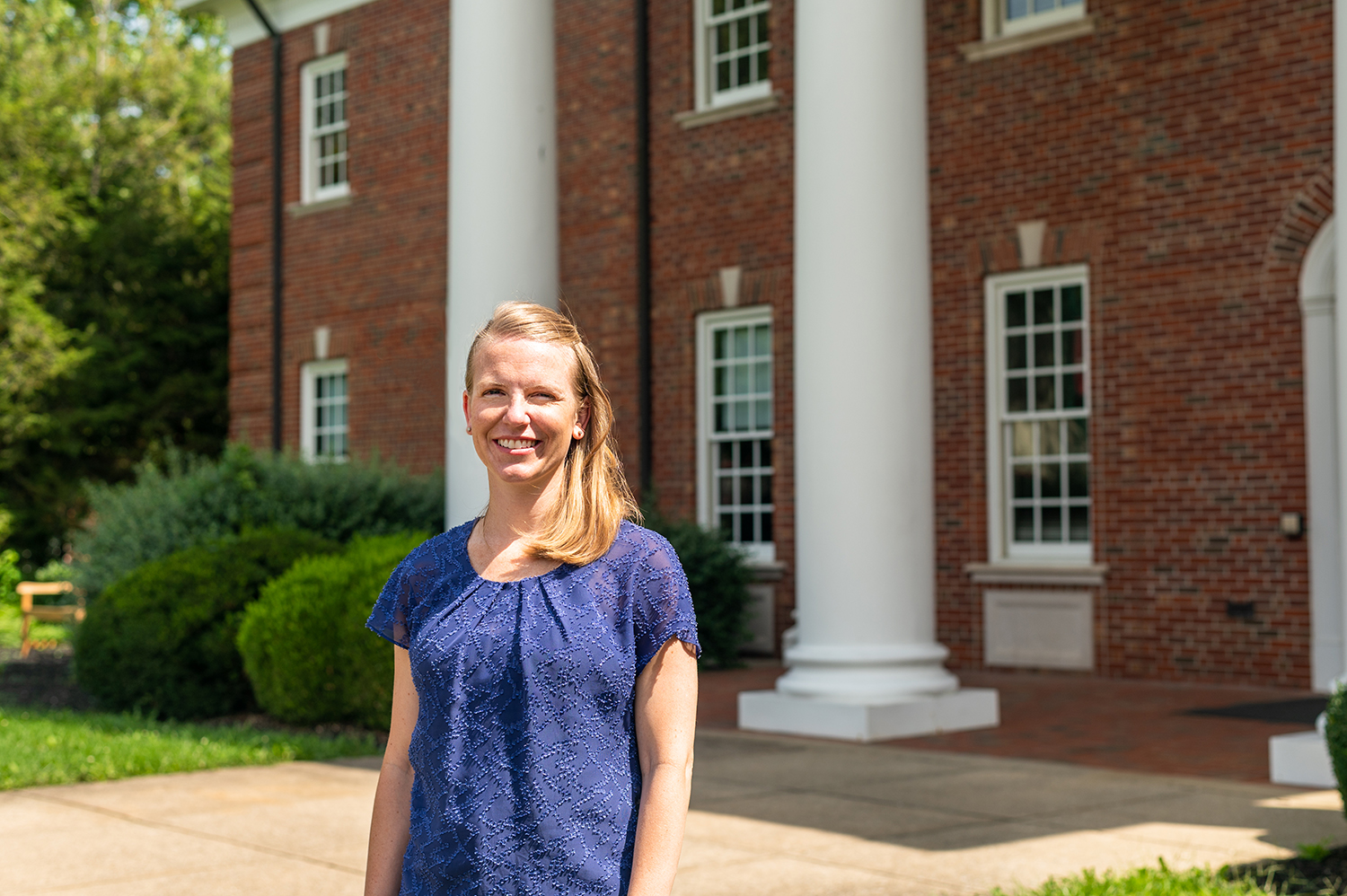
Transylvania University students are benefiting from the real world experience of Melissa Mattox, a visiting lecturer who’s been a certified public accountant for the past 12 years.
While Mattox’s first term in her new role is an unusual one because of the pandemic — the hallways of the Cowgill Center where she teaches are a little too quiet — she’s still excited to be back at the university she graduated from in 2007.
“I’ve always wanted to teach,” she said. “It’s something that I’ve been thinking about since I graduated.”
Mattox, who majored in accounting and math at Transy, has stayed connected to the university over the years, helping out with the school’s Volunteer Income Tax Assistance program and teaching a tax course last fall.
Having worked for a regional accounting firm and served as a tax manager for a law office, Mattox has pretty much seen every way people can mess up their books. “It makes it a lot easier to come up with examples, because what my clients mess up is what my students are going to misunderstand,” she said.
Additionally, textbooks tend to focus on issues faced by big businesses, maybe not the types of things many of her students will encounter if, say, they were to go on and open their own business. “The book teaches the big picture, and then I try to take it down to what real people are doing,” said Mattox, who this term is teaching Principles of Accounting I and Income Tax for Individuals.
She also draws from what she’s learned as a board member for the Kentucky Society for CPAs, which these days is addressing the problem of how to boost the number of people working in the field. “With more Boomers retiring, there is more of a need for accountants than there are accountants out there,” Mattox said.
Highlighting how the work isn’t as dull as some might think is one way to generate interest and fill the pipeline. “People think of accounting as someone sitting in a back room crunching numbers,” she said. But that’s not really their job these days — “that’s what we have computers for now. It frees you up for strategic thinking.”
Fitting in well with a liberal arts education, accounting takes a multidisciplinary approach; it ties in a variety of subjects, from economics to ethics. When Mattox first started, she did a lot of work with charities seeking tax-exempt status, which meant long write-ups on why they deserved such a designation. A partner at the firm told her that writing isn’t what most accountants do, so it may be a struggle for her. “I was like, ‘What? I went to Transy. It’s fine — it’s what we do.'”

